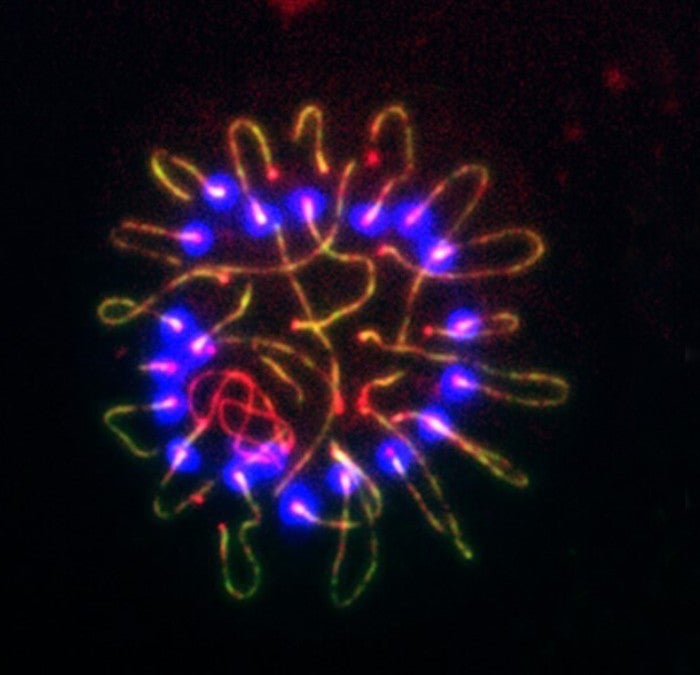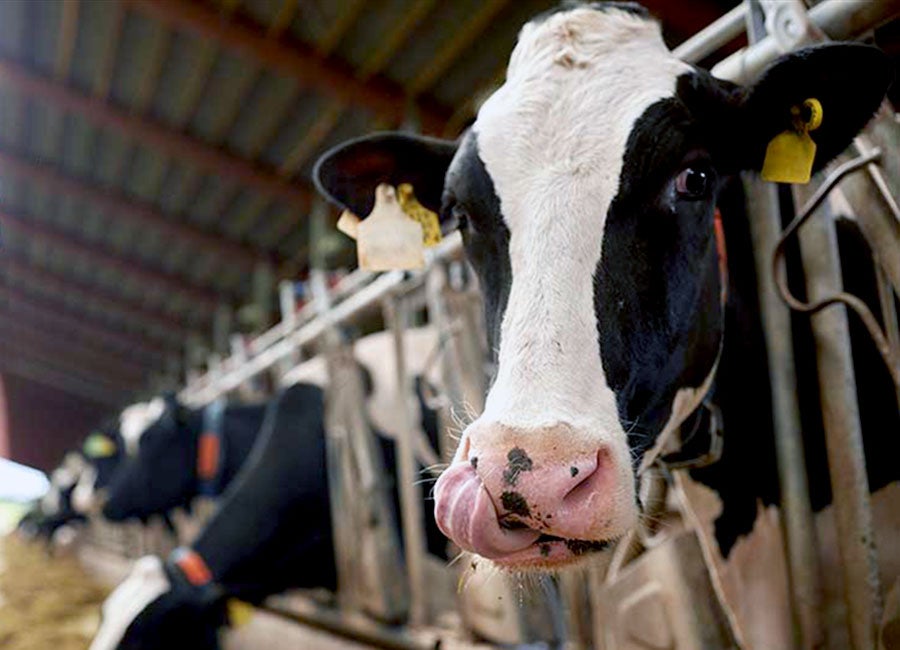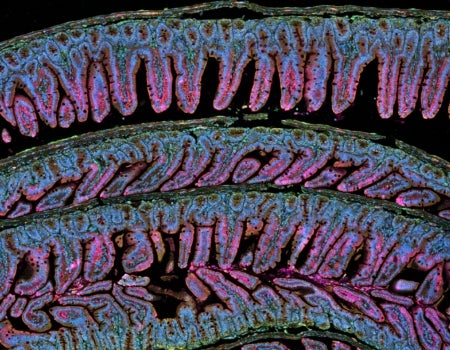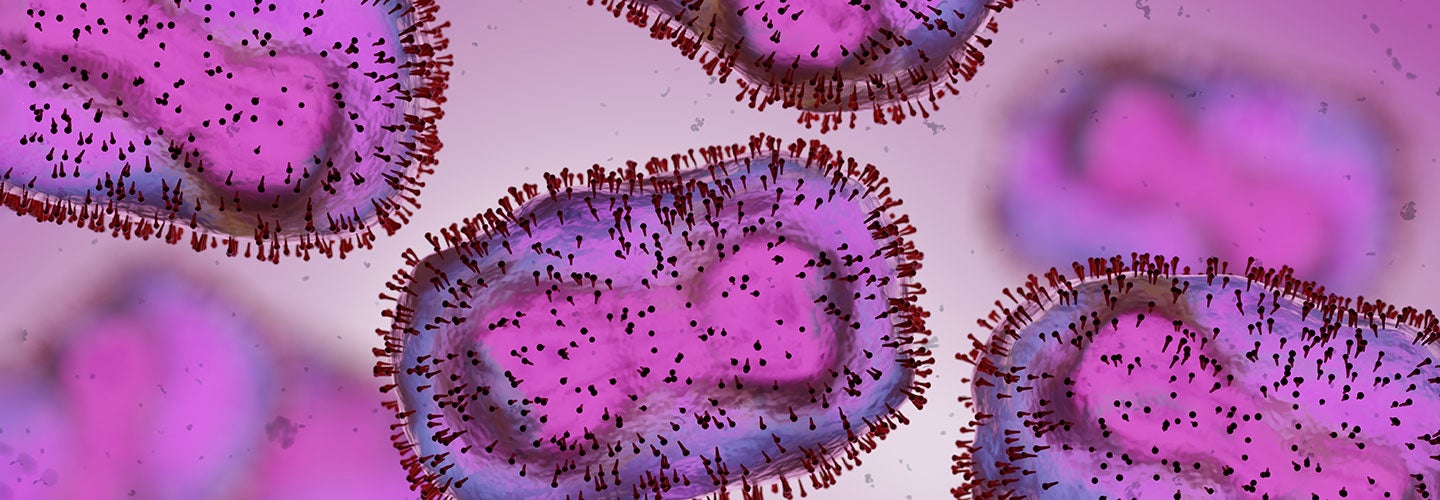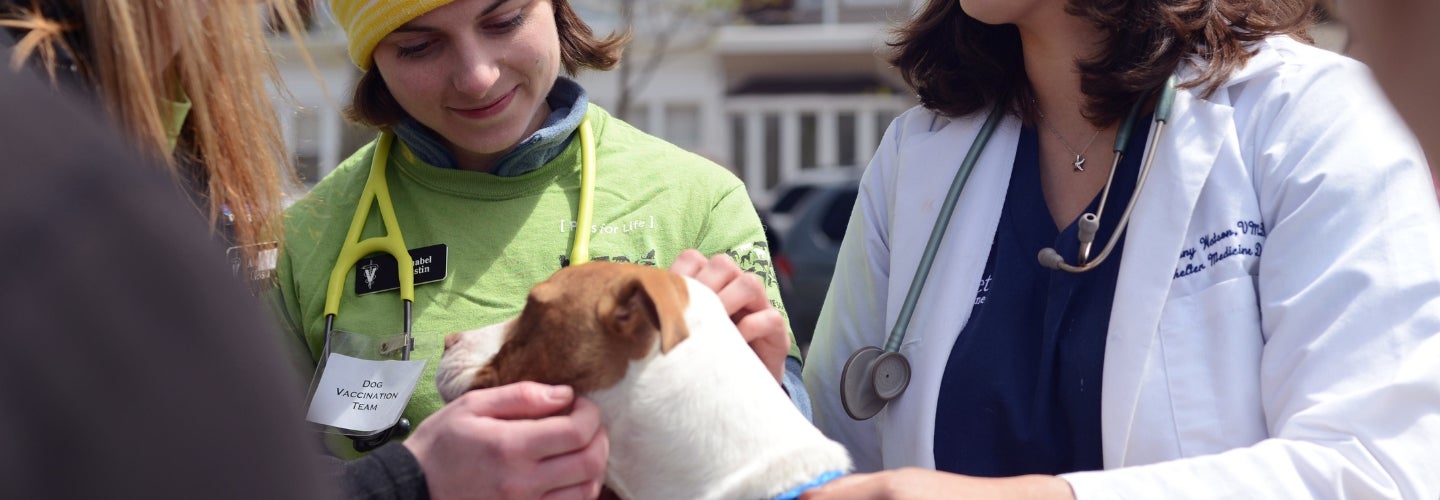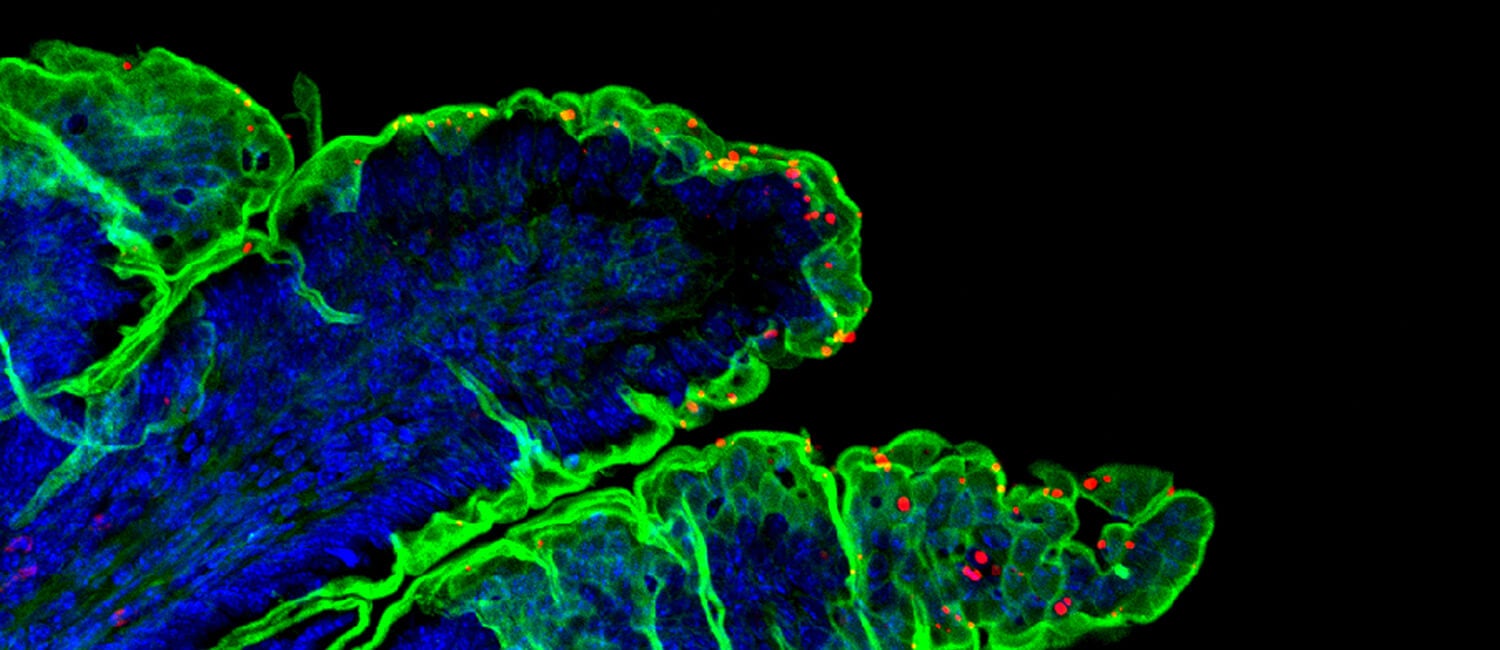
Research
Penn Vet scientists bring a valuable veterinary component to the table of scientific exploration, creating novel applications to improve animal health outcomes while also providing invaluable translational knowledge needed to advance human health.
Accelerating Research
Penn Vet’s research centers and programs (RCPs), and faculty laboratories, serve as a hub of discovery where scholars, students, and members of Penn’s biomedical community accelerate veterinary medicine’s impact on animal, human, and environmental health worldwide. Penn Vet’s RCPs generate courses, academic programs, community outreach, peer-reviewed research, and partnerships among academics, government, and industry.
In addition to its strengths in biomedicine, Penn Vet has a distinctive niche in infectious disease research, particularly in the areas of immunology and host-pathogen interactions, with robust research portfolios in neglected tropical diseases and diseases of poverty such as hookworm, the acute parasitic disease Schistosomiasis, malaria, Ebola, and other hemorrhagic viral illnesses.
Leveraging experience
Universally Recognized
Faculty Labs
Nationally in per-faculty funding from NIH
Research Centers and Programs
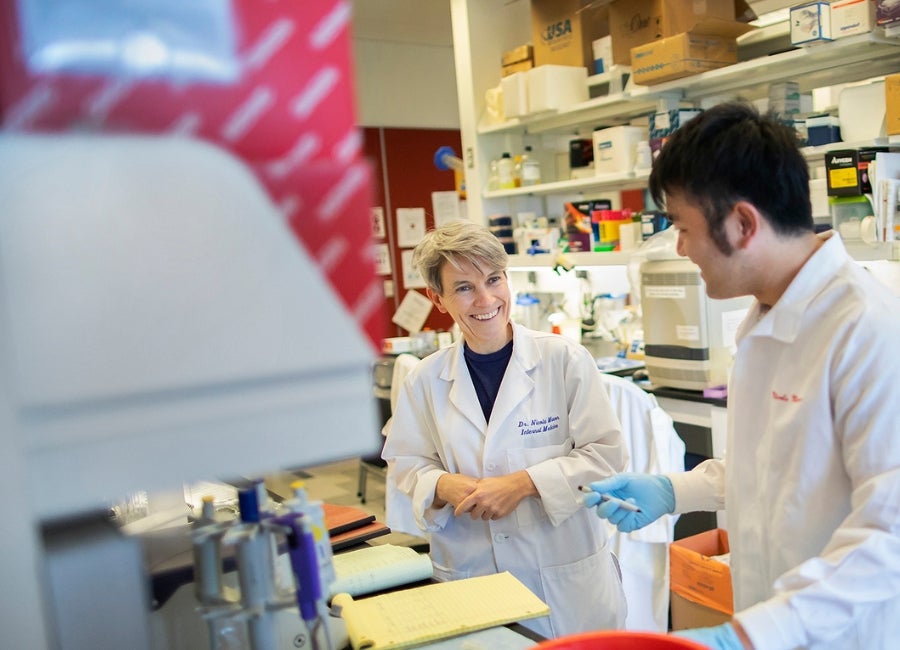
we’re exploring:
Featured Research Program
Comparative Immunotherapy Program
The mission of the Comparative Immunotherapy Program is to improve the lives of both animals and humans by leveraging comparative medicine, to understand immune mechanisms of disease and create innovative immunotherapies in areas of unmet need.
Research and Core Laboratories
Penn Vet faculty are engaged in ongoing, groundbreaking research. Additionally, our research facilities include state-of-the-art core laboratories. Learn more about both the Philadelphia and Kennett Square campuses research.
connect
Research Events and Newsletter
Penn Vet’s cornerstone research events and newsletter showcase the innovative science, collaborations, and discoveries emerging from our faculty.

Research News

Penn Vet Announces Fourth Annual Symposium on Zoonotic Disease Research
The Institute for Infectious and Zoonotic Diseases (IIZD) at the University of Pennsylvania’s School of Veterinary Medicine (Penn Vet) has announced the agenda for its 2026 IIZD Symposium. The event…
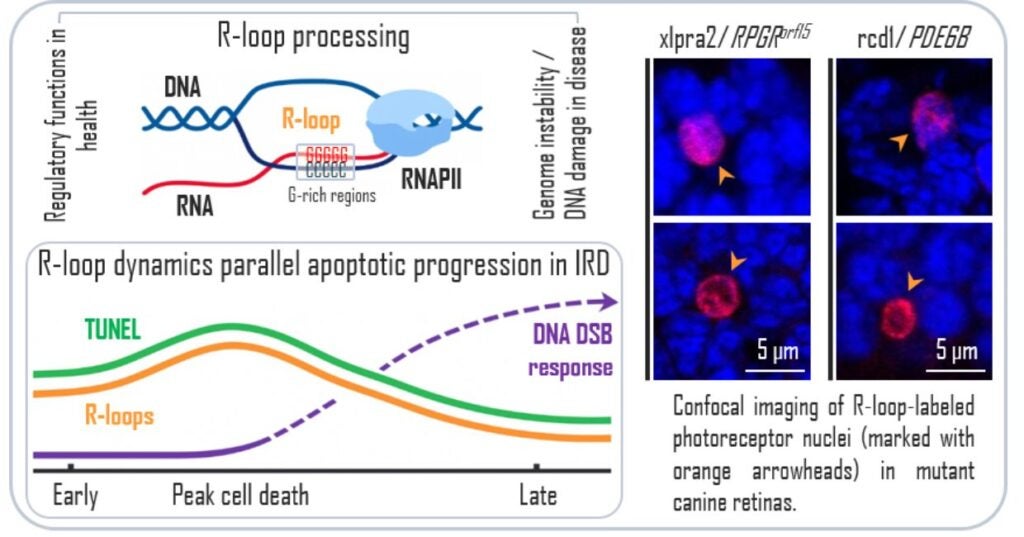
Penn Vet Researchers Uncover a Shared Cellular Stress Signal that May Drive Vision Loss in Retinitis Pigmentosa
Study finds buildup of unusual RNA-DNA loops in degenerating photoreceptors, pointing to a shared molecular stress pathway across distinct genetic forms of inherited blindness.

Behind the Breakthroughs: David Holt
In this edition, we sit down with small animal Professor of Surgery, David Holt, BVSc, DACVS. Dr. Holt is redefining how cancer is seen and removed during surgery. A Diplomate…

Sniffing out cancer: Trained dogs can detect hemangiosarcoma by scent (link is external)
Penn Vet’s Cynthia M. Otto and Clara Wilson and colleagues show that trained dogs can identify the odor of hemangiosarcoma, a devastating canine cancer, offering the hope of a better…

